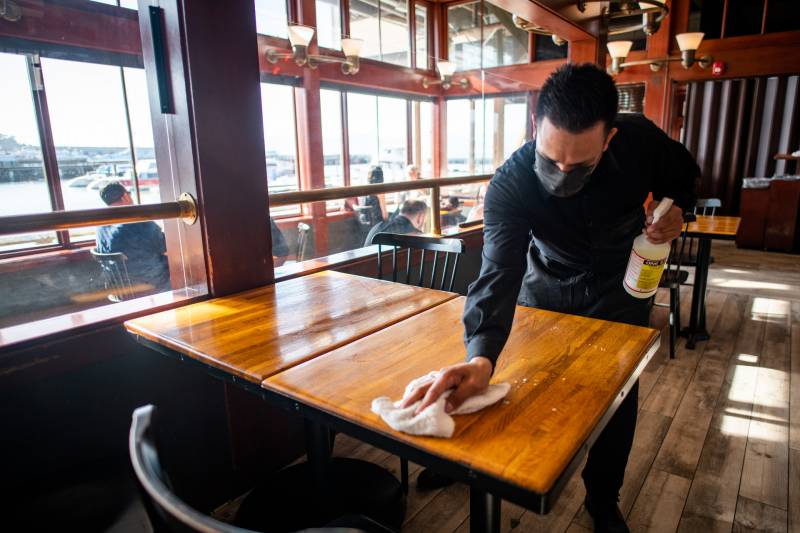Remember that long-lost pleasure of enjoying a drink inside a bar? In San Francisco, starting Thursday, you can do that again (if you’re old enough). Then, if you’re feeling up to it, enjoy a sweat in a sauna and maybe even a few bounces in the trampoline park.
That’s because the city will move into the state’s least-restrictive yellow tier governing COVID reopenings, effective 8 a.m. Thursday. City leaders announced the move on Tuesday, which will allow the few remaining business sectors that have remained shuttered to reopen, and allow significantly expanded capacity in others.
San Francisco and Los Angeles County — which on Tuesday also announced plans to advance to the least-restrictive tier — will become the first major urban areas in California to do so, having both met the state’s requirements of low COVID-19 case rates, hospitalizations and other health metrics.
“This is an incredible milestone for us to hit as we move forward on our path to recovery, and it is possible because of how well we are doing in our efforts to vaccinate everyone we can in this City and how well the people of San Francisco have done listening to public health officials,” Mayor London Breed said in a statement Tuesday. “The Yellow Tier means that no longer are there any businesses that are required to keep their doors shut in this City, and it means we are continuing to allow more activities to be done safely with more people.”
With this change, San Francisco will expand most indoor activities to 50% capacity.

